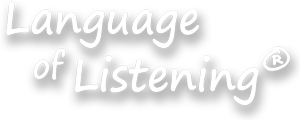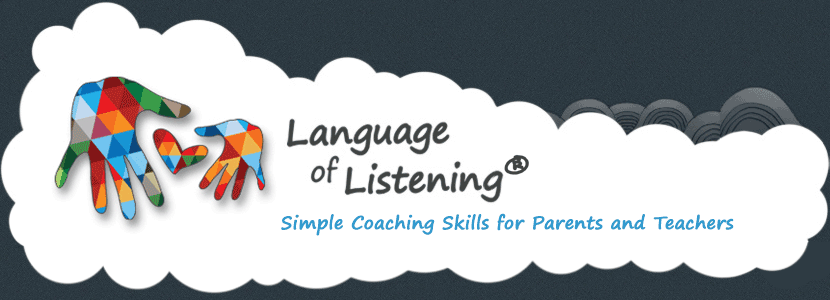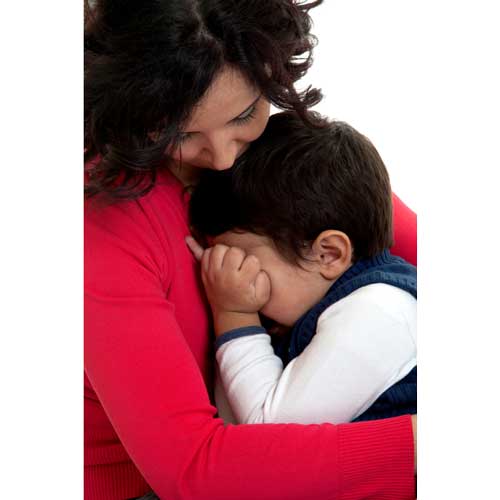Are your “shoulds” really yours? When a “should” comes from you, you nod when you speak it, feel validated when you hear it, and are often willing to fight to defend it, as in, “I should be able to do what I love!”
By contrast, “shoulds” that are not yours create feelings of pressure and self-doubt, as in “I should be doing more.” So how do you pick up guilty “shoulds,” how can you send them back, and how can you keep from passing them on to your children?
I answered that for a mum who was referred to me for coaching by my friend and colleague, Rachel Macy Stafford of Hands Free Mama. Our Q&A is shared here by permission.
Question:
I am Mum to two beautiful girls, one full of life-giving energy and the other a compassionate noticer. I wondered if you could give me some feedback on an experience which at 36 years old I am trying to fight my way out of.
Life has been great to date. Great family, no health hurdles, popular at school (school captain in both Primary & High school), good job, good friends etc. I show natural leadership tendencies and have often found myself in positions which allowed those gifts to shine. Throughout my life people have spoken words of encouragement like “you are a natural leader”, “you are going to do great things in this world”, “you are destined for huge things”… But more recently “when are you going to start walking in your destiny”, “when are you going to use the gifts and skills you have been blessed with”, “when are you going to realise your potential”.
I feel like the words of encouragement that people spoke over me in my youth have now become markers to reach and that I am disappointing people. It is like raising my family well and being happy and contributing in a quieter more intentional way to the world doesn’t count because it is not using the obvious character traits that I carry.
My question is, how do you balance that when raising your children? How do I allow space for my compassionate noticer to develop those tendencies but also let her know that if she suddenly decides to be a bulldozer of red tape instead that that is okay? And for my energetic child, how do I encourage her energy and “get out of my way” personality but also give room for her to change and try out a different fit? I feel completely imprisoned by the words spoken over me early in life even though they were intended for good. I fear doing the same to my girls.
Answer:
For years people thought that praise was the best way to encourage kids. Recent studies have shown that it can have exactly the nasty backlash that you describe. In my book, SAY WHAT YOU SEE for Parents & Teachers, I describe how to provide encouragement using acknowledgment instead of praise.
Basically, praise is an opinion which children often rightly hear as an expectation because it is a statement of what the adult thinks of the child and wants to see more of. It’s more about the adult than the child. If a child agrees, praise does no harm; if not, it can feel like pressure.
For example, if your daughter already believes she is a noticer, or the other daughter, unstoppable, and you say that, the children will simply agree and won’t feel pressured. However, if they don’t see those strengths in themselves, and you drop that on them as something you want to see more of (opinion), they are likely to hear it as an expectation and a way to please you – in short, something they “should” be.
That’s one way kids become guided more by outside approval than internal which makes them more susceptible to peer pressure later. (Managing children with disappointment is even worse, but I won’t go into that here.) If they take on your opinion as something they “should” be, the same kind of pressure and self-judgment that you are now struggling with in your own life begins for them.
Encouraging children with acknowledgment keeps that from happening. A statement of acknowledgment begins with a description of what the child is doing or just did, followed by naming the strength that the child’s action shows. By focusing on the child’s actions and how the child feels about her own accomplishment, it becomes a “centering” comment, not an externalizing one. For example:
Praise: “You’re my little noticer! I love that about you!” (Total opinion with pressure to do it more to please you.)
Acknowledgment: “That tiny little bug caught your eye, and you watched intently as it figured out what to do to get across that twig that’s in its way. You noticed that! You’re a noticer; you love noticing little things.”
Acknowledgment is all about the child, not you. Describing what the child is actually doing provides concrete proof of the strength; focusing on how the child feels about it and her own opinion of it makes it centering. This is SAYing WHAT YOU SEE and adding a STRENGTH as I describe in my book.
All children have every possible human strength, they just don’t know it. Since they act according to who they believe they are, the more strengths we can help them see in themselves and identify with, the more they will have to draw on throughout their lives.
Acknowledgment allows you to encourage kids without pressure or expectation because it gives them proof that the strength is already there. It’s basically a description of them now, not who they “should” be.
Acknowledgment is all about the child, not about you. I think this is what you are looking for to help your children experience their full potential without external pressure.
Acknowledgment is all about the child, not about you. I think this is what you are looking for to help your children experience their full potential without external pressure to do so.
For yourself, it may help to know that the only thing you need to do to relieve yourself of the pressure you feel is to decide what YOU want and separate it from what you think other’s want (or wanted) for you. Their opinions are right for them. What is right for you, only you can say. By separating the two, you are in effect sending their “shoulds” back!
For now you said you want to raise your family well (no small challenge!) and be happy and contribute in a quieter more intentional way to the world. The only person holding you back from doing that with pride and satisfaction is you. When you can give yourself permission to do that, you are finally realizing your leadership potential by leading YOU! After that, who knows what you will choose to do or when, but it will be guided by what YOU want, not what others think you should do.











